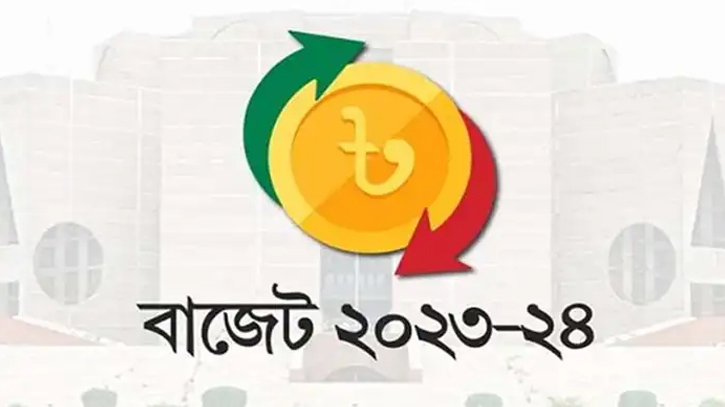
Photo: Collected
College teacher Rezaul Karim expressed his discontent with the budget for the fiscal year 2024-25, presented by the Finance Minister Abul Hassan Mahmood Ali in the National Parliament on Thursday. On Facebook, he articulated his frustrations, highlighting how various aspects of everyday life, such as household expenses, car rentals, house rents, pocket money, stress, heat, and targets, are set to increase.
He lamented the projected increase in loans and debts, indicating a worsening financial situation for the common people. Rezaul metaphorically described the budget as a "Benazir (Unprecedented) budget," implying a sense of helplessness and dissatisfaction among the populace. He criticised the government's inability to address the concerns of ordinary citizens, likening their predicament to being thrown into the sea with hands and feet tied, an act he equated to being left at the mercy of fate.
Left-wing politician Rajibul Islam commented on the budget as well, drawing a parallel between the two major political parties, BNP and Awami League, likening them to brothers. He criticised the Finance Minister's assurance that inflation would decrease by the year's end, noting the vagueness of the statement, akin to BNP's ambiguous declarations about post-Eid movements without specifying which Eid. This comparison suggests a lack of clarity and accountability in the government's economic plans.
Abdul Bari expressed frustration at the situation, highlighting the burden of paying interest despite not having any debt. He lamented the lack of opportunities to invest money within the country, which could have yielded returns rather than accumulating interest payments.
Tanveer Ahmed commented on the high-interest rates and taxation policies, stating, "Interest on 100 taka is 22 taka! Tax is 30% on legitimate income, and 15% tax on black money. Will Aziz-Benazir be made in this country or will Dervish be made?"
Sunita Chakma expressed her dismay, writing, "The tradition of stealing blankets has come to reserve. The nation is shocked and ashamed of such development of piracy.
Rafiqul Islam, a philosophy teacher at a college in Dhaka, conveyed a sense of helplessness, stating, "The common people have nothing to do but regret. It is like the judgment of nature for dumb people!"
Dhaka University student Mehdi Hashan questioned the logic behind certain economic decisions, writing, "Without reducing the price of fertilisers, pesticides, diesel, how did the price of rice decrease? It's a suicidal decision - equivalent to a robbery in daylight." He criticized the government's approach, suggesting that it is impractical and detrimental to farmers and consumers alike, comparing it to an act of daylight robbery.
Shahid Sarwar expressed his frustration with the budget, describing it as "a budget of outrage on silent people" and a "good judgment of dumb people." His words convey the sentiment that the budget is unfairly targeting those who are unable to voice their dissent effectively.
Ali Javed questioned the practicality and fairness of the tax system, stating, "If a 15 percent tax can be paid by robbing on the street, then the robbers will become VAT-registered traders! Is it ever possible?" He highlights the absurdity of the situation.
Nazrul Islam Chy sarcastically questioned the legitimacy of properties acquired through questionable means, asking, "Well, if Mr. Benazir pays 15 per cent tax now, will his properties be valid?"
Forhad Shariar critiqued the budget's impact on social classes, stating, "Through this budget, the tools of exploitation of the poor and the middle class have become stronger."
Meanwhile, on Friday, the day after the budget announcement, the reporter observed the immediate impact on consumer goods prices in Maniknagar market in the capital. Prices of essentials like garam masala, onions, garlic, oil, and sugar remained high, leaving consumers disappointed due to the lack of concrete measures in the budget to reduce these prices. Furthermore, within a few hours, the fish and vegetable markets were also negatively affected, reflecting the widespread discontent and economic strain among the populace.
Messenger/Fameema








